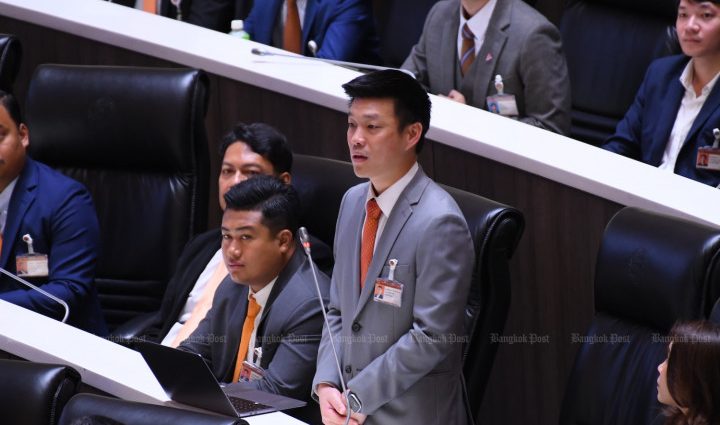Opposition leader disappointed that Pheu Thai wants to put off review of bill that seeks to end conflicts

The opposition People’s Party is urging the coalition to revise the decision it made on Monday to defer indefinitely the House’s review of a new amnesty bill.
He said he did not see any reason why a review of a study on the bill, previously scheduled to take place on Thursday, should be put off as suggested by the coalition.
The study findings were simply opinions on how the new bill should be, and they would not be legally binding, the opposition leader said.
More importantly, he said, those who have been facing legal prosecution in connection with their past political movements deserved, and were waiting for, legal remedies.
The study commissioned by a House committee is considered contentious because it recommends that lese-majeste offenders be covered by the amnesty. Supporters of that proposal argue that most prosecutions under the royal defamation law were political in nature.
On Monday, Prime Minister’s Office Minister Chousak Sirinil, in his capacity as chairman of the House committee overseeing the study, said coalition parties had reached an agreement to put on hold the review of the study to allow time for the parties to further discuss the findings and find common ground.
Mr Chousak cited the need to first achieve consensus among coalition parties on what the government’s amnesty bill should contain — the first step to guarantee the bill an easy passage through the House.
Chaithawat Tulathon, former leader of the now-defunct Move Forward Party (MFP), the precursor of the People’s Party, said that even though there are many different opinions across various groups on what an amnesty should involve, he strongly believes society has already reached a consensus that the amnesty is an ideal solution to promote reconciliation.
The impact of political conflicts that began before the Sept 19, 2006 coup and lasted up until 2020 remains and continues to be holding back efforts to build national reconciliation, according to Mr Chaithawat.
The only remaining burning issue related to the drafting of the amnesty bill is whether or not those who have been prosecuted on lese-majeste charges should also receive an amnesty under the bill, he said.
He said this is the real reason behind Mr Chousak’s move to defer the House review, adding that the Pheu Thai Party may fear the issue could jeopardise the coalition’s stability so it has steered clear of it.
Four drafts of a new amnesty law are awaiting submission to the House for deliberation, Mr Chaithawat said.
These drafts belong to Move Forward, Democrat Party, Thai Teachers for People Party and United Thai Nation Party, he said.

